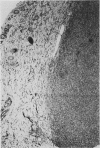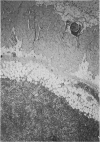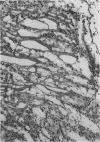Abstract
The growth of tumours in guinea-pigs was observed for 20 weeks after placing them on various doses of vitamin C. Complete tumour regression occurred in 55% of those animals receiving 0-3 mg/kg/day ascorbic acid, whereas animals given 10 mg/kg/day showed tumour inhibition but no regression. In contrast, tumours in animals maintained on 1 g/kg/day ascorbic acid grew without sign of retardation. When increased amounts of ascorbic acid were restored to the diet of scorbutic tumour-bearing animals, tumours which had not regressed responded with enhanced growth. Likewise, animals previously maintained on 10 mg/kg ascorbic acid responded in turn to the additional vitamin with enhanced tumour growth. In contrast, all tumour-bearing animals maintained on 1 g/kh ascorbic acid died within 3 weeks when this dose was replaced with 0-3 mg/kg.
Full text
PDF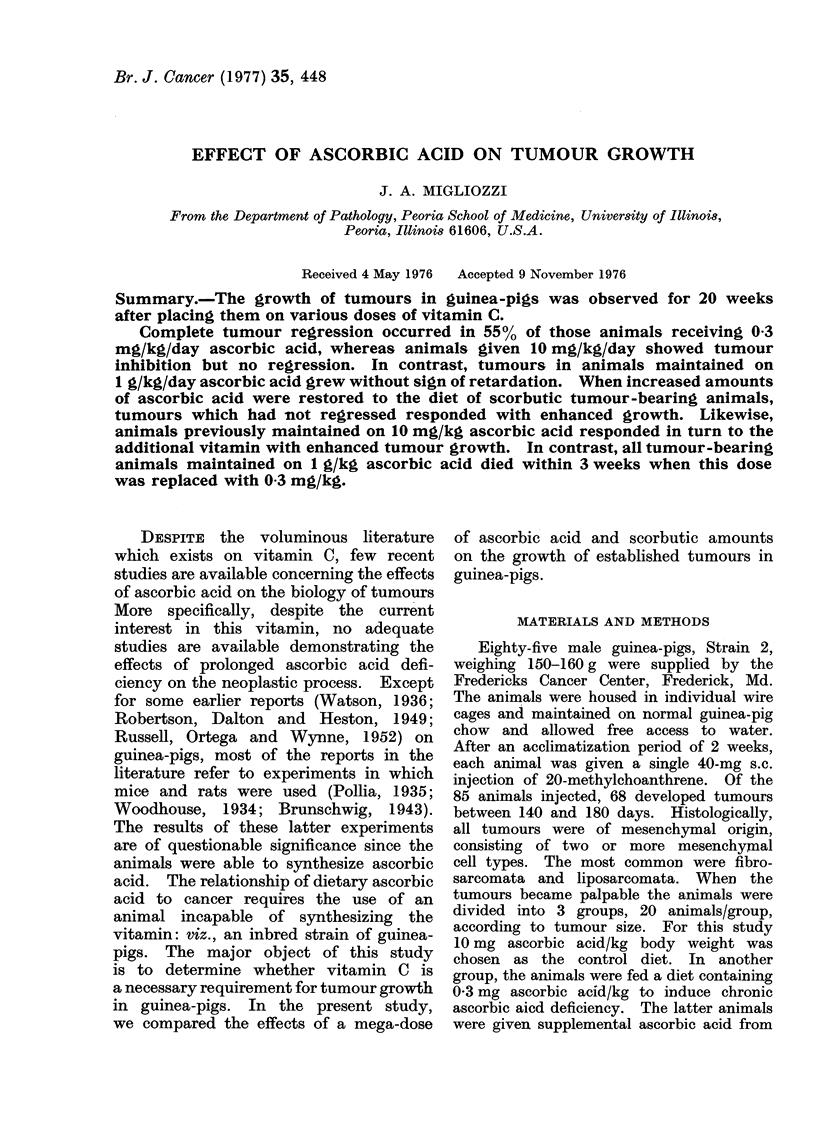
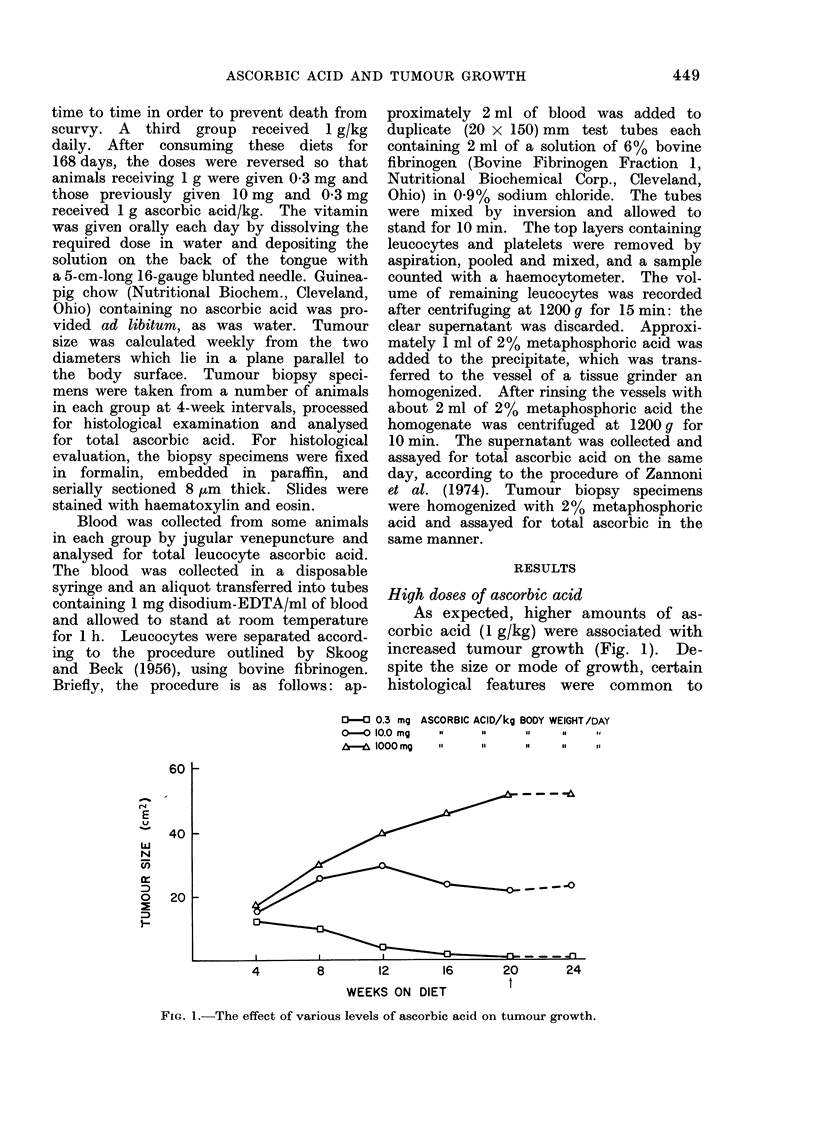
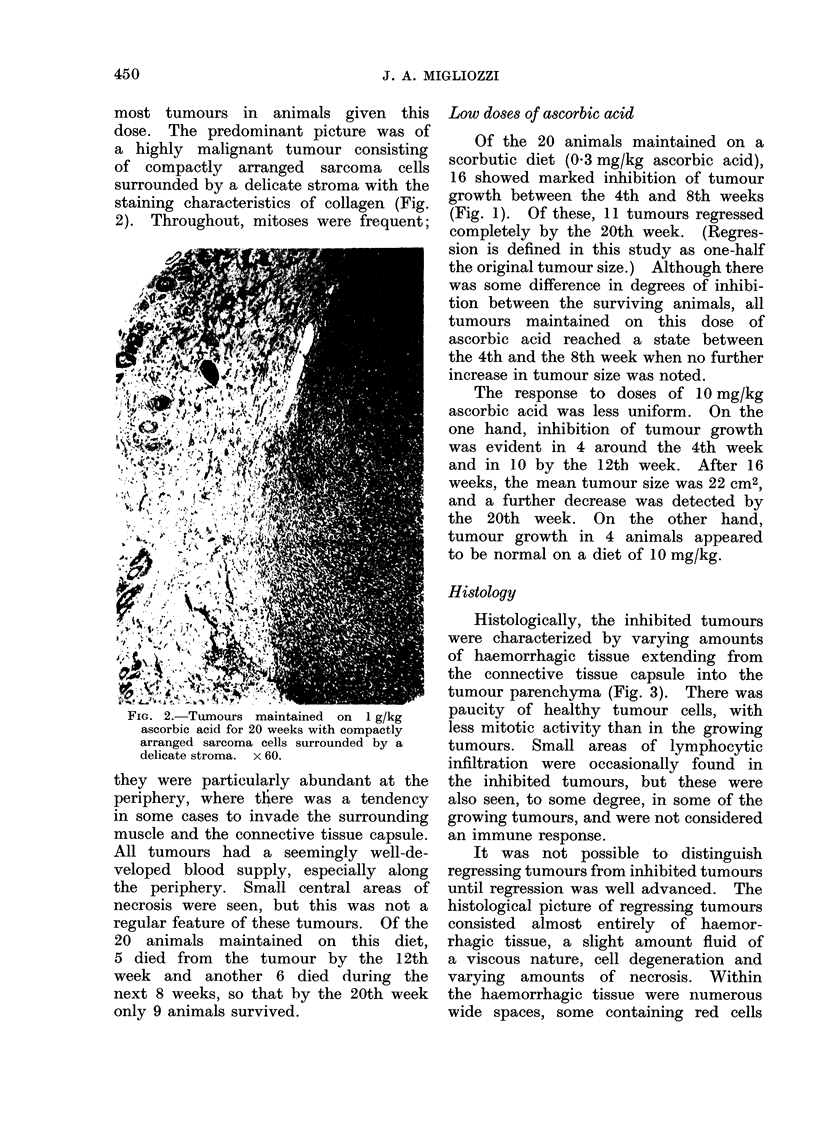
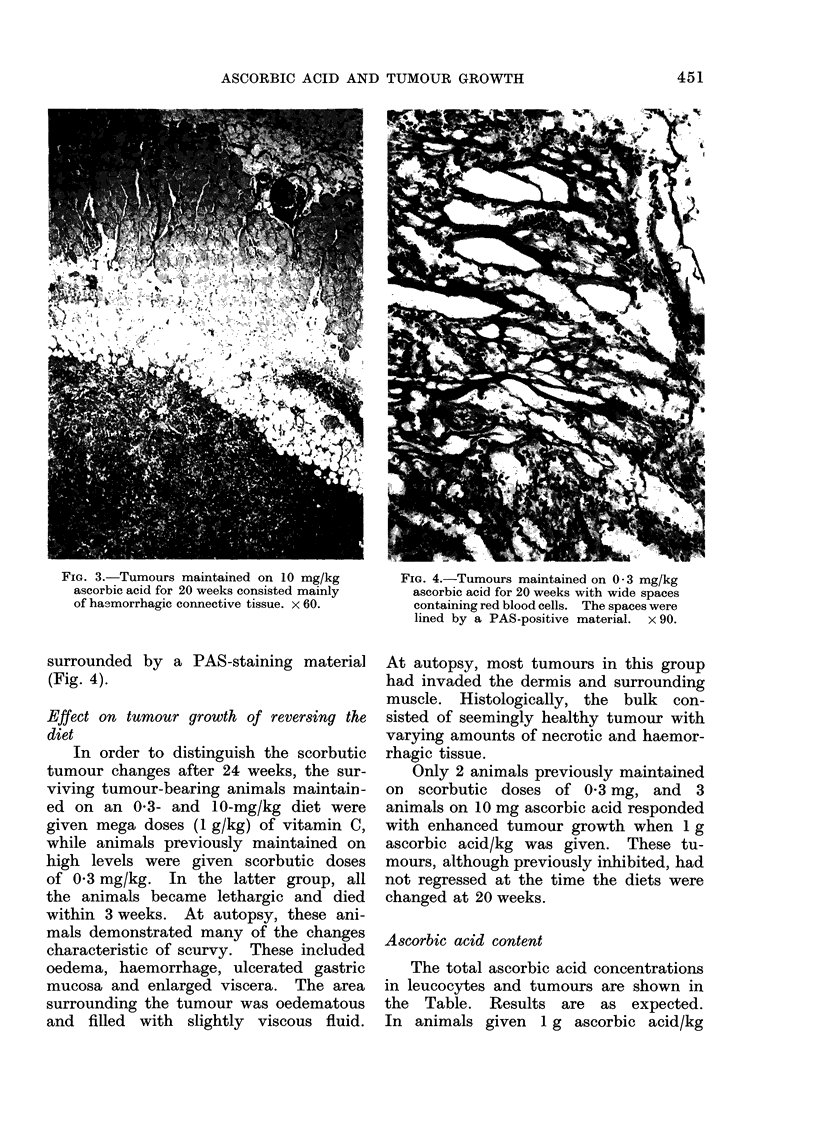
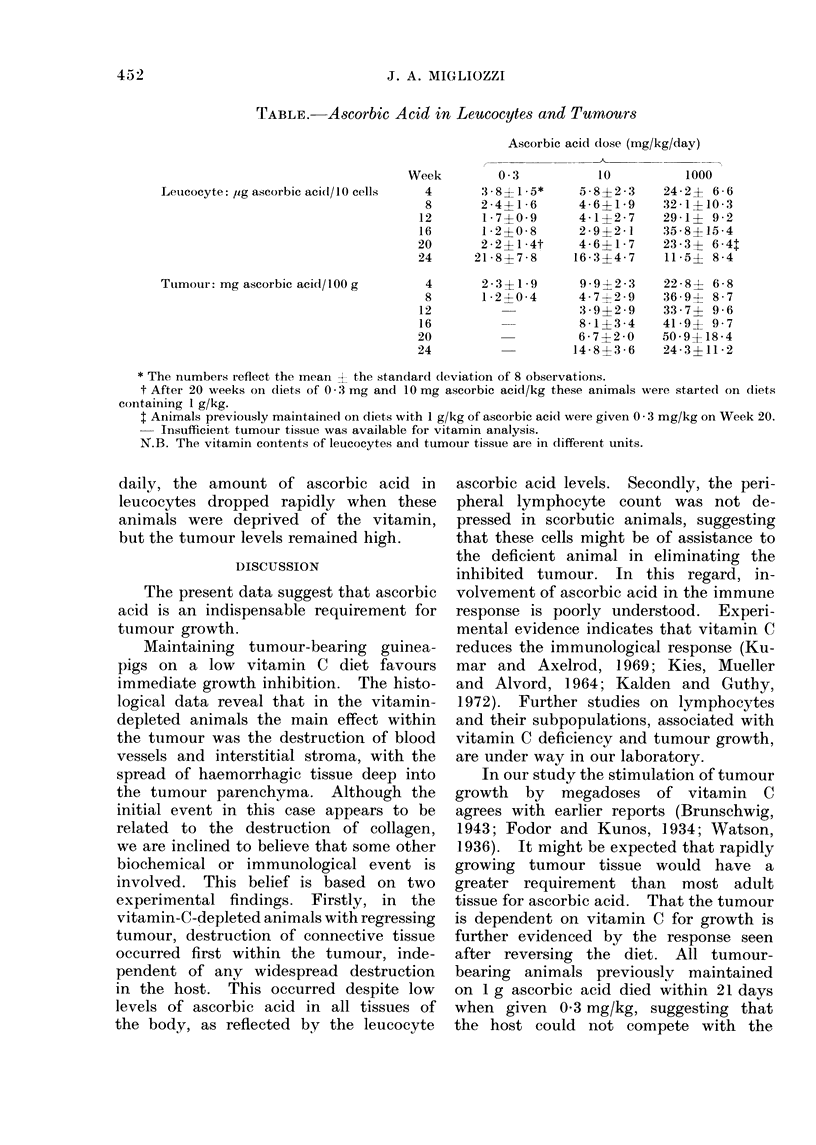
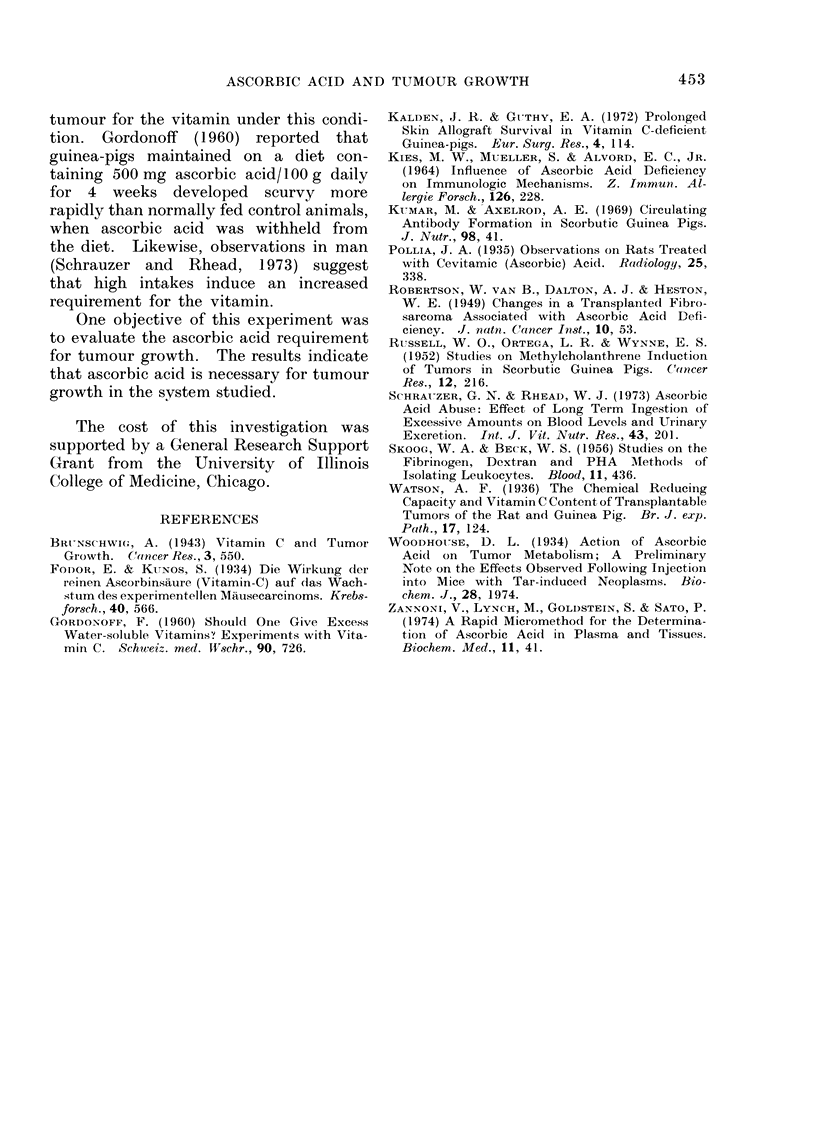
Images in this article
Selected References
These references are in PubMed. This may not be the complete list of references from this article.
- GORDONOFF T. [Can water-soluble vitamins be over-dosed? Research on vitamin C]. Schweiz Med Wochenschr. 1960 Jul 2;90:726–729. [PubMed] [Google Scholar]
- Kalden J. R., Guthy E. A. Prolonged skin allograft survival in vitamin C-deficient guinea-pigs. Preliminary communication. Eur Surg Res. 1972;4(2):114–119. doi: 10.1159/000127607. [DOI] [PubMed] [Google Scholar]
- RUSSELL W. O., ORTEGA L. R., WYNNE E. S., FRANKEL J. J. Studies on methylcholanthrene induction of tumors in scorbutic guinea pigs. Cancer Res. 1952 Mar;12(3):216–218. [PubMed] [Google Scholar]
- SKOOG W. A., BECK W. S. Studies on the fibrinogen, dextran and phytohemagglutinin methods of isolating leukocytes. Blood. 1956 May;11(5):436–454. [PubMed] [Google Scholar]
- Schrauzer G. N., Rhead W. J. Ascorbic acid abuse: effects on long term ingestion of excessive amounts on blood levels and urinary excretion. Int J Vitam Nutr Res. 1973;43(2):201–211. [PubMed] [Google Scholar]
- Woodhouse D. L. The action of ascorbic acid on tumour metabolism: A preliminary note on the effects observed following injections into mice with tar-induced neoplasms. Biochem J. 1934;28(6):1974–1976. doi: 10.1042/bj0281974. [DOI] [PMC free article] [PubMed] [Google Scholar]
- Zannoni V., Lynch M., Goldstein S., Sato P. A rapid micromethod for the determination of ascorbic acid in plasma and tissues. Biochem Med. 1974 Sep;11(1):41–48. doi: 10.1016/0006-2944(74)90093-3. [DOI] [PubMed] [Google Scholar]



